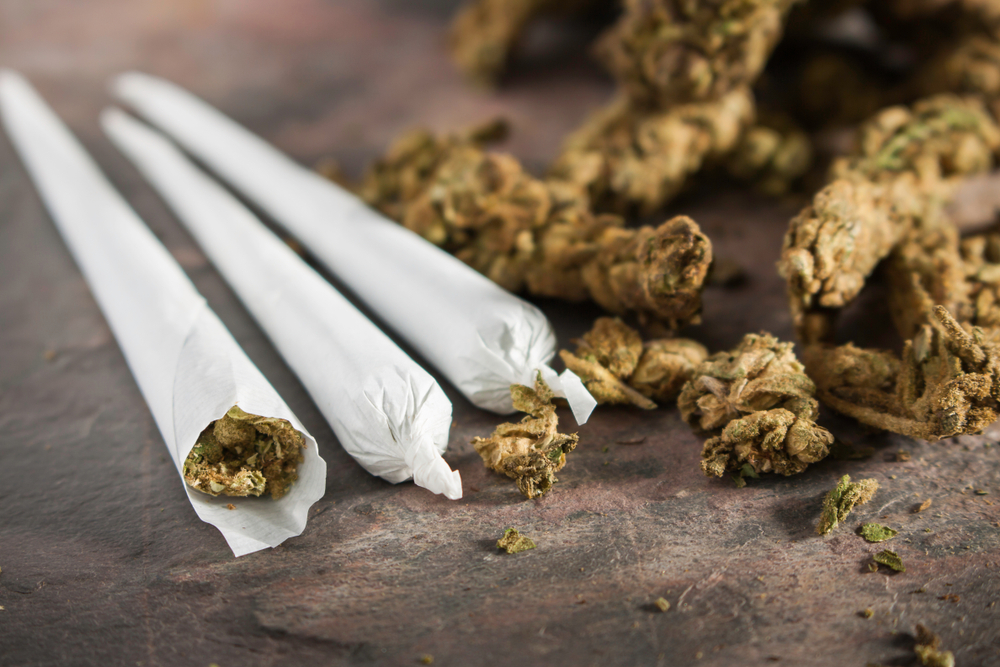Written By Quinton James and Johnkeria Kinglocke
“No one has ever died from smoking Marijuana,” is a very common phrase when someone is defending marijuana use. It is proven that regular marijuana use is associated with long-term problems, including poor academic performance, memory loss, and lung cancer. To a developing brain, like those of teenagers, marijuana can be especially toxic. Using marijuana can lead to panic attacks, depression, and other mental health problems, not to mention increased anxiety. Ever since medical and recreational use of marijuana laws were passed, society’s perception of harm regarding the drug has greatly diminished. Unfortunately, most people don’t know about the myths and facts of marijuana, the effects it has on youth and adults, and most of all the laws associated with marijuana in Florida.
Marijuana and a healthy, active lifestyle do not mix. Using marijuana can hurt your health and affect how well you do in sports, how you sleep and eat, and how your brain develops. Let’s look at a couple of common myths…
- MYTH: “Marijuana has been found to cure cancer and help effectively treat many diseases.”
According to the Center for Diseases Control and Prevention (CDC), although marijuana and cannabinoids have been studied regarding managing the side effects of treating cancer or disease, there are no ongoing clinical trials that state marijuana cures or helps control any disease, but in fact, causes complications. Most jobs within the U.S. require drug testing upon hire.
- MYTH: “The THC in marijuana smoke will clear out of my body in a couple of days and then I’ll be ok to take my drug test at school on Monday.”
The truth of the matter is THC is highly lipid (biomolecule) soluble and can store itself in your fat cells for several months. When marijuana is smoked, it can last for a minimum of 36 hours in your blood, 34 to 48 hours in your saliva, 1 to 3 days in your urine, and 90 days in your hair. Edibles tend to last even longer.
- MYTH: “Marijuana is not addictive.”
Many teens believe marijuana is not addictive, but the National Institute on Drug Abuse (NIDA) states that people who begin using marijuana before age 18 are 4-7 times more likely than adults to become addicted! Shocking, right?! Take into consideration, if someone pressures you to smoke marijuana, how that decision can interfere with some of the daily healthy decisions you make.
“My friends smoke marijuana with their parents, so why can’t I try it?” Most teens and adults don’t fully understand some of the effects of marijuana. Long term marijuana use has been linked to increased risk of psychosis and schizophrenia (dementia, hallucinations, or disturbance). Using marijuana while pregnant can cause low-birth weight and make it difficult for your child to pay attention or learn, and it also causes depressed motivation. Smoking marijuana in any form can cause scarring and damage to blood vessels, causing respiratory diseases such as acute bronchitis and chronic obstructive pulmonary syndrome (COPD). There have been clinical trials done on rats studying Adolescent Brain Cognitive Development (ABCD) which shows that THC affects the hippocampus (memory formation and information processing). One rat was exposed to THC every day for 8 months and showed a nerve cell loss at age 11 to 12 months that equaled that of unexposed animals twice their age. The rat loss 30% of its life span.
Would you allow someone to drive you while they are high? According to the Department of Children and Families (DCF), marijuana-impaired driving fatalities have more than doubled since marijuana use has become legalized. Did you know one in five drivers are under the influence of marijuana? Even more alarming is that nearly ten percent of students reported driving after using marijuana, and almost twenty-five percent admit to riding with a driver who was under the influence of marijuana. The CDC reported roughly 12 million Americans drove high on marijuana in 2018. Also, based on the Substance Abuse and Mental Health Services Administration’s (SAMHSA) National Survey on Drug Use and Health, which was taken by 48,000 people in 2018, 4.7% of Americans ages 16 and older said they have driven high.
Is marijuana legal in Florida? The answer is no; possession of more than 20 grams can lead to a felony charge. Medical marijuana is legal, allowing up to 2.5 ounces for those with a qualifying condition, who are over the age of 21. There was been a ban on smoking medical marijuana, but it has since been repealed. The Florida Medical Marijuana Legalization Initiative known as Amendment 2 was established on November 8, 2016, and made medical marijuana legal in the state of Florida. Furthermore, Amendment 2 was designed so that the Department of Health would regulate marijuana production and distribution by issuing identification cards to patients and caregivers.
If someone pressures you to try marijuana think about the myths and facts, its effects on youth and adults, and most importantly, the laws associated with marijuana in Florida.
Resources
- CDC (27 Feb 2018) Marijuana and Public Health. Retrieved from:
- NIDA (23 March 2020) Is marijuana addictive? (https://www.drugabuse.gov/publications/research-reports/marijuana/marijuana-addictive
- Forbes (4 May 2018) Here’s How Much Money States are Raking In from Legal Marijuana Sales. Retrieved from: https://www.forbes.com/sites/andrewdepietro/2018/05/04/how-much-money-states-make-cannabis-sales/#4a899e3bf181
- The University of Washington Drug and Abuse Institute (2017) Cannabis Use Disorder.
- Healthline (2005-2020) The Effects of Marijuana on Your Body. Retrieved from: https://www.healthline.com/health/addiction/marijuana/effects-on-body#1
- National Institute on Drug Abuse (April 2020) Marijuana Long-Term Effects on the Brain. Retrieved from: https://www.drugabuse.gov/publications/research-reports/marijuana/what-are-marijuanas-long-term-effects-brain
- CDC (16 March 2018) What you need to know about Marijuana Use and Pregnancy.
- CDC (27 February 2018) Marijuana: How Can it Affect Your Health. Retrieved from.



